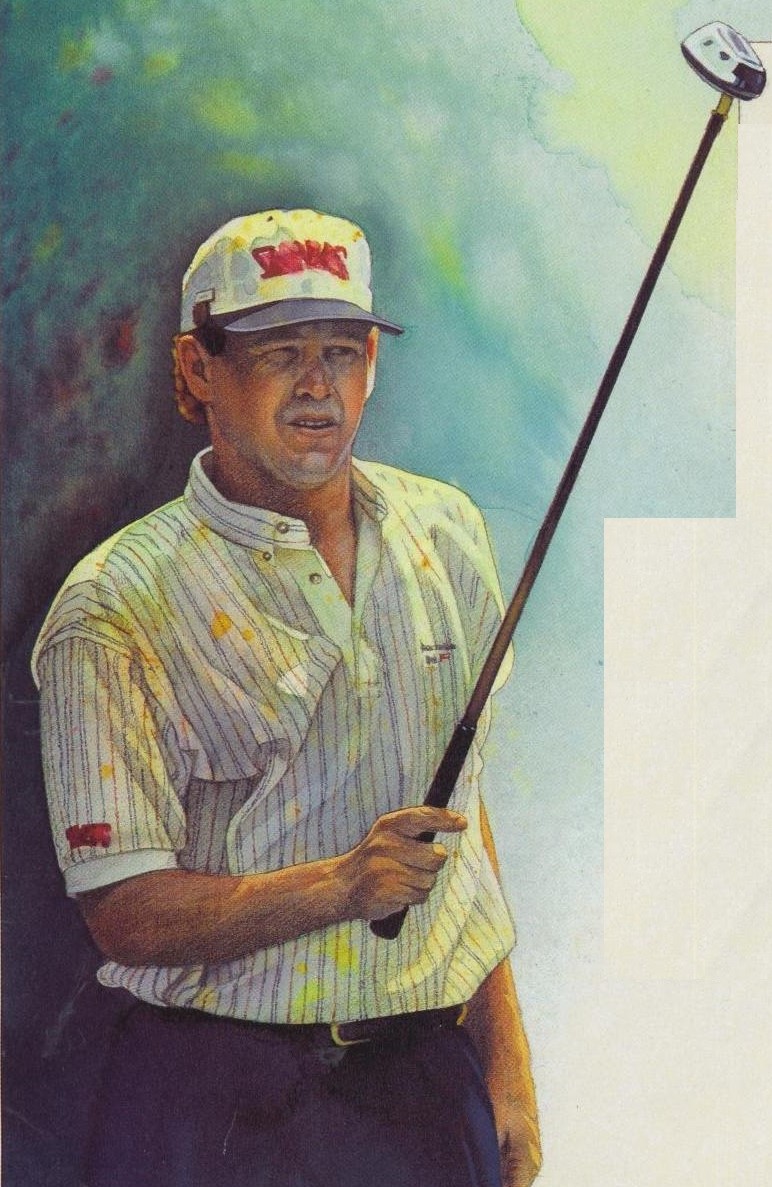 Talking in the 19th Hole
Talking in the 19th Hole
DRIVER..
Self-confidence feeds on the perception of control: that is, the player controls what matters to
him, and not vice versa. To strengthen control, the player must focus on what depends on him, what is
under his control. The player must attend to what needs to be done to win and not waste attention, time,
and emotional energy on matters over which he cannot influence.
Let's take a look at the elements of the game that you can and cannot control:
- You can control:
- Your address.
- Your attitudes.
- Your decisions.
- Your routines.
- The commitment to the shot.
- The selection of the club.
- Your integrity.
- Your diet.
- Your hydration.
- Your reactions.
- Your pace of play.
- The equipment you use.
- You can´t control:
- The ga of the other players.
- The tee times.
- The pace of play of the other players.
- The etiquette of the other players.
- Your playing partners.
- The weather.
- The course conditions.
- The lie of the ball.
- Irregularities on the green.
- The speed of the green.
- The breaks of the green.
- The pin placements.
- A bad bounce on the fairway.
- The wind.
- The round of the day before or the day after.
A useful strategy to focus on what you can control is establishing playing focus, which are execution or
result obectives related to elements you can control. For example:
- Do the pre-shot routine on each shot.
- Make a round without double bogeys.
- Make a maximum of two putts per hole.
- Swing with rhythm six on a scale from 1 to 10.
- Finish the swing in balance.
- Reach the green every shot of 50 yards or less.
- Make the transition smooth to come inside.
- On each putt, my ball will enter or pass the hole.

For playing focus to work, it is recommended that:
- You write the playing focus with the characteristics that we saw of the objectives (Newsletter
22).
- Write or say the playing focus in a positive way. For example, not saying "I'm not going to leave
shorts approach shots," rather saying "I will select the club that allows me to reach the back edge
of the green."
- Manage specific playing focus. For example, "I will swing with stability on impact," rather than
just vaguely saying, "I will swing well."
- Establish playing focus with objectives that are under your control. For example, it is not correct
to say "I will shoot 70 and be champion"; it is better to say "I will follow my game plan hole
after hole."
- You commit to the playing focus during the round.
- Record the playing focus on the scorecard.
- Record how well you stay engaged with the playing focus.
- The registration can be by stroke or by a hole. You can use a rating of 1 to 5 or 1 to 10.
Playing focus helps you bring your mind back to the present and focus your attention on the most
important shot, the one you are going to hit right now.
Exercise:
Write down five playing focuses that you plan to use in your next rounds.
1.
2.
3.
4.
5.
FORE.
 Talking in the 19th Hole
Talking in the 19th Hole
